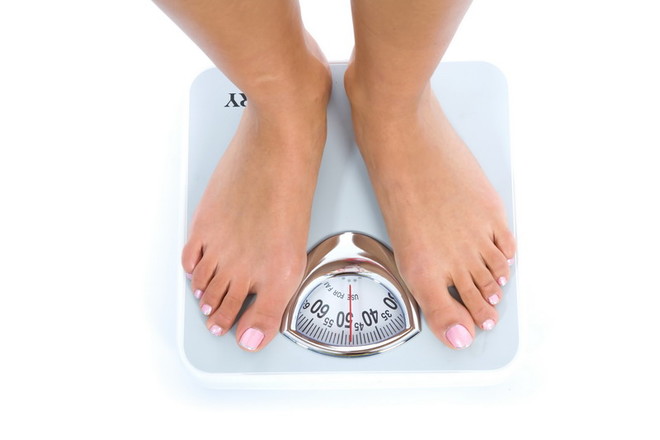 Bulimia symptoms The most striking symptomsThe symptoms of the disease are: a sharp increase in appetite, usually occurring in the form of a bout of gluttony and accompanied by a feeling of excruciating hunger, general weakness, pain in the epigastric region. Bulimia is more of a female disease, usually existing in two variations of psychological disorder. The first type of bulimia usually overtakes girls during puberty. Adolescence is characterized by alternating periods of brutal appetite with periods of complete absence of hunger, as well as sharp weight fluctuations. These rapid weight drops and gains are what distract from the problem: the girl does not worry when her appetite overcomes her, because it is easy for her to lose weight. She calmly overeats, then loses weight, then again gives in to the will of her appetite. Until the period comes when the appetite never ends, and the weight keeps growing…The second type of bulimia lies in wait for its victim at the age of 25-30 during a period of severe nervous overload, when a young woman constantly strives to "eat away" her stress, the body gradually gets used to uncontrolled, unlimited food intake, a psycho-emotional dependence on food is developed, there is no feeling of satiety and, as a result, obesity occurs. For patients with each of the variations of bulimia, a constant obsession with thoughts about food is characteristic. Realizing that something is "wrong" with them and realizing their own "imperfection", they begin an active fight against excess weight through strict diets, active physical exercise, fasting and cleansing the body of consumed food with the help of laxatives, enemas, diuretics, artificial vomiting.
Bulimia symptoms The most striking symptomsThe symptoms of the disease are: a sharp increase in appetite, usually occurring in the form of a bout of gluttony and accompanied by a feeling of excruciating hunger, general weakness, pain in the epigastric region. Bulimia is more of a female disease, usually existing in two variations of psychological disorder. The first type of bulimia usually overtakes girls during puberty. Adolescence is characterized by alternating periods of brutal appetite with periods of complete absence of hunger, as well as sharp weight fluctuations. These rapid weight drops and gains are what distract from the problem: the girl does not worry when her appetite overcomes her, because it is easy for her to lose weight. She calmly overeats, then loses weight, then again gives in to the will of her appetite. Until the period comes when the appetite never ends, and the weight keeps growing…The second type of bulimia lies in wait for its victim at the age of 25-30 during a period of severe nervous overload, when a young woman constantly strives to "eat away" her stress, the body gradually gets used to uncontrolled, unlimited food intake, a psycho-emotional dependence on food is developed, there is no feeling of satiety and, as a result, obesity occurs. For patients with each of the variations of bulimia, a constant obsession with thoughts about food is characteristic. Realizing that something is "wrong" with them and realizing their own "imperfection", they begin an active fight against excess weight through strict diets, active physical exercise, fasting and cleansing the body of consumed food with the help of laxatives, enemas, diuretics, artificial vomiting. Active periods of fighting excess weight (as(a consequence of bulimia) are accompanied by an accumulation of nervous tension, which at a certain point breaks out in the form of a gluttony attack. At different stages of bulimia progression, patients may experience from two to forty attacks per month. The gluttony attack itself is expressed in uncontrolled food consumption. During each attack, the patient can eat up to two kilograms of food or more, after which he feels discomfort, heaviness in the stomach, palpitations, sweating, weakness, even loss of consciousness, drowsiness and heaviness in the whole body. Then the patient regrets what he did, blames himself for the lack of willpower, a feeling of guilt towards himself. And as a result of all this - the decision is made: to cleanse the stomach, . However, vomiting does not prevent the absorption of even half of the nutrients, which contributes to another weight gain! After artificially induced vomiting, the feeling of hunger arises again. And again the patient begins to fight with himself - an irresistible desire to eat and shame for your desire. In addition, the acidic environment of the stomach destroys tooth enamel, disrupts the microflora of the esophagus and oral cavity - this leads to serious problems with the digestive tract in a patient with bulimia. The feeling of a "hungry stomach" leads to even more gluttony, which in turn leads to more vomiting. And this can continue for many years! Severe forms of bulimia lead to sharp, abrupt, significant (up to 10 kg or more) fluctuations in weight, problems with the gastrointestinal tract, kidneys, tooth loss, swelling of the parotid gland, internal bleeding, shortness of breath, low blood pressure and deep depression. Individual, group and family psychotherapy are used in treatment. It is important to understand that not every woman develops bulimia. The reasons can be of a physiological nature - metabolic features, hormonal profile, vitamin deficiency, as well as psychological - features of character, upbringing and response to stress and problems, perception of oneself and the world around. A properly balanced course of treatment can not only solve the problem of nutrition, excess weight and psychological dependence on food, but also allow the patient to gain confidence in himself and his uniqueness.
Active periods of fighting excess weight (as(a consequence of bulimia) are accompanied by an accumulation of nervous tension, which at a certain point breaks out in the form of a gluttony attack. At different stages of bulimia progression, patients may experience from two to forty attacks per month. The gluttony attack itself is expressed in uncontrolled food consumption. During each attack, the patient can eat up to two kilograms of food or more, after which he feels discomfort, heaviness in the stomach, palpitations, sweating, weakness, even loss of consciousness, drowsiness and heaviness in the whole body. Then the patient regrets what he did, blames himself for the lack of willpower, a feeling of guilt towards himself. And as a result of all this - the decision is made: to cleanse the stomach, . However, vomiting does not prevent the absorption of even half of the nutrients, which contributes to another weight gain! After artificially induced vomiting, the feeling of hunger arises again. And again the patient begins to fight with himself - an irresistible desire to eat and shame for your desire. In addition, the acidic environment of the stomach destroys tooth enamel, disrupts the microflora of the esophagus and oral cavity - this leads to serious problems with the digestive tract in a patient with bulimia. The feeling of a "hungry stomach" leads to even more gluttony, which in turn leads to more vomiting. And this can continue for many years! Severe forms of bulimia lead to sharp, abrupt, significant (up to 10 kg or more) fluctuations in weight, problems with the gastrointestinal tract, kidneys, tooth loss, swelling of the parotid gland, internal bleeding, shortness of breath, low blood pressure and deep depression. Individual, group and family psychotherapy are used in treatment. It is important to understand that not every woman develops bulimia. The reasons can be of a physiological nature - metabolic features, hormonal profile, vitamin deficiency, as well as psychological - features of character, upbringing and response to stress and problems, perception of oneself and the world around. A properly balanced course of treatment can not only solve the problem of nutrition, excess weight and psychological dependence on food, but also allow the patient to gain confidence in himself and his uniqueness.

Making Money with Desserts: Success Stories
Evgeniya Polischuk (Fedutinova) instagram:@evgeniyafedutinovavk.com/janeshomebaking– It all started with baking for family and friends. Gradually, I started posting photos of my baked goods on Instagram – and orders started coming in. I made my first custom-made cake on October 13, 2014, and a little earlier I started making macaroons and cupcakes. You could say that the business “found me”, I am very […]

Soups are cold recipes with photos
Cold cucumber soup with yogurt and lemonsorbet from the chef of the restaurant La Taverna Alexander Zhurkin Photo: Getty Images Ingredients: Plain yoghurt – 125 g Cucumber – 150 g Lemon/lime sorbet – 50 g Cocktail shrimp – 24 g Fresh ginger juice – 1 g Lime juice – 5 g Fresh orange juice – 5 g Parsley – 1 g Pink pepper – 1 g Watercress – […]

barbeque kebab
Pork tenderloin in glaze Photo:Dmitry Bayrak/dbstudioPreparation time: 20 minutes + marinating time.Calories: 454 kcal per serving.For 4 servings: 4 pork tenderloins (approximately 300 g each), 1 onion, 2 cloves of garlic, 1 tsp. lemon zest, 1 tsp. lemon juice, a pinch of ground cumin, coriander and turmeric, 1 tbsp. vegetable […]

Pierre Duacan: dietary recipes: Ducane diet
Beetroot soup Photo:Season’S, Luxury Hotels RepresentationYou will need:· Boiled beetroot – 60 g· Fresh cucumbers – 20 g· Red radish – 20 g· Green onions – 10 g· Egg – 1 pc.· Drinking mineral water – 200 g· Salt – 1 gPreparation:· Boil the egg and beetroot.· Grate the cucumbers, radish and part of the beetroot. Put everything […]





